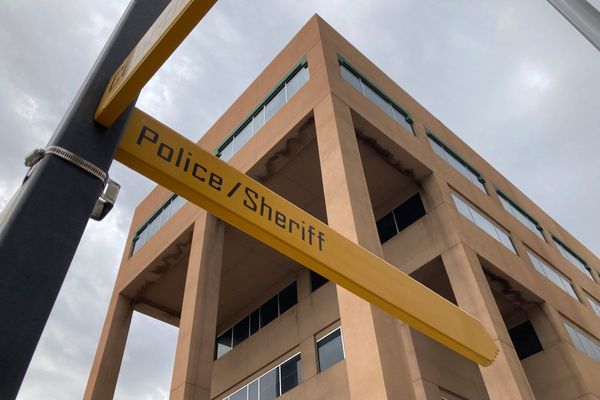As a seven-year-old, Kerri Collins was abused by a teacher at her primary school. What followed was years of frustration as she did everything she could to try to stop her abuser from teaching children, all while she was dealing with the trauma of the abuse.
WARNING: This story contains details that may cause distress.
Ms Collins gave evidence on Monday to the Commission of Inquiry into the Tasmanian Government's Responses to Child Sexual Abuse in Institutional Settings.
Ms Collins told the commission she was sexually abused by a teacher in the late 1980s.
When a new school counsellor came to her school a few years later, Ms Collins and three other girls who had been abused by the teacher, known as John*, told the counsellor.
She said the counsellor believed the girls and took meticulous notes.
Ms Collins also said she was believed and well supported by her family.
"They've always believed me and I guess that's the main thing that stays with me, because the system hasn't ever believed me … I know the other girls were also believed by their families, so that made a huge difference for all of us," she said.
She told the commission her class teacher was very supportive, but the school principal and some other teachers made it clear they did not believe her.
Ms Collins also made a complaint to the police. She told the commission she was never told what happened to that complaint.
As a university student studying psychology and social work in the early 2000s, she said it "all came crashing down" on her that John was still teaching children.
"I became quite depressed and I was suicidal at the time and I moved back home to my parents for 18 months," she said.
Ms Collins made another statement to police. The other three women who had been abused also made statements and John was charged. This time it looked like action was going to be taken — Ms Collins said a committal hearing was held and she received a summons to give evidence at trial.
But just before the trial, Ms Collins said she received a phone call from someone working in the prosecution service.
"I was furious, I was upset, I was angry. I just couldn't fathom how it could go through that process and get to that point for one person to be judge, jury and decide that that's not going to go ahead. I just didn't understand that."
Ms Collins then tried to make a complaint about John to the Teachers Registration Board but was again thwarted. Her mother also wrote a letter to the board. She said she also sought advice from a private lawyer and was told there was nothing else she could do.
"Essentially after that for a period we gave up ... [I] felt like I had nothing else to give," she said.
Some time later she wrote to a minister, which triggered a review of the Teachers Registration Board's complaints process.
Complainant fears for career after speaking out
In 2018, now working as a social worker within the Education Department, Ms Collins was contacted by a police officer who wanted to talk to her about John.
"I nearly fell off my chair because it had been so long ... someone else from the federal [child sexual abuse] royal commission had made a disclosure and they'd reopened the case," she said.
Again, the case went nowhere, but Ms Collins later heard John was "on suspension".
Counsel assisting the commission Elizabeth Bennett SC told Ms Collins the Director of Public Prosecutions' current position was that the complainants against John "are entitled to feel a sense of injustice" and that had first complained more recently, prosecution would have been launched.
Ms Collins is a senior social worker with the Education Department. She said she saw some schools dealing well with their responsibilities when it came to the mandatory reporting of child sexual abuse, and others not so well.
"There's others that get nervous and either want to maintain the relationship with the family or, I'm not sure why, but there are staff that aren't allowed to, or don't feel they're allowed to, mandatory report without running it past the principal first.
"We tell them that that's not the case, but that's definitely a culture that's developed within the school and it's also by the principal."
She also told the commission that as a department employee, she was worried about potential implications for her career from speaking to the commission.
Education Department secretary to take a stand
This week's hearings will focus on the Education Department and how it has handled allegations of child sexual abuse.
Education Department secretary Tim Bullard will appear later in the week.
Ms Bennett said Mr Bullard's evidence would identify "a range of gaps which he perceives to exist in the systems as they presently operate".
"The department can do more, he says, to improve the processes for investigating allegations of child sexual abuse committed by current staff," Ms Bennett said.
She said Mr Bullard had also identified failures to support children and young people who have made allegations of child sexual abuse against an employee or, in some instances, a peer, and he also accepted there had been deficiencies in sharing information within the department and across agencies, as well as with bodies such as the Teachers Registration Board.
"Mr Bullard says further that the department must do more to support its staff to help them understand how to prevent, identify and respond to suspicions and allegations of child sexual abuse, to listen to the voices of children and young people," Ms Bennett said.
*Name has been changed.







